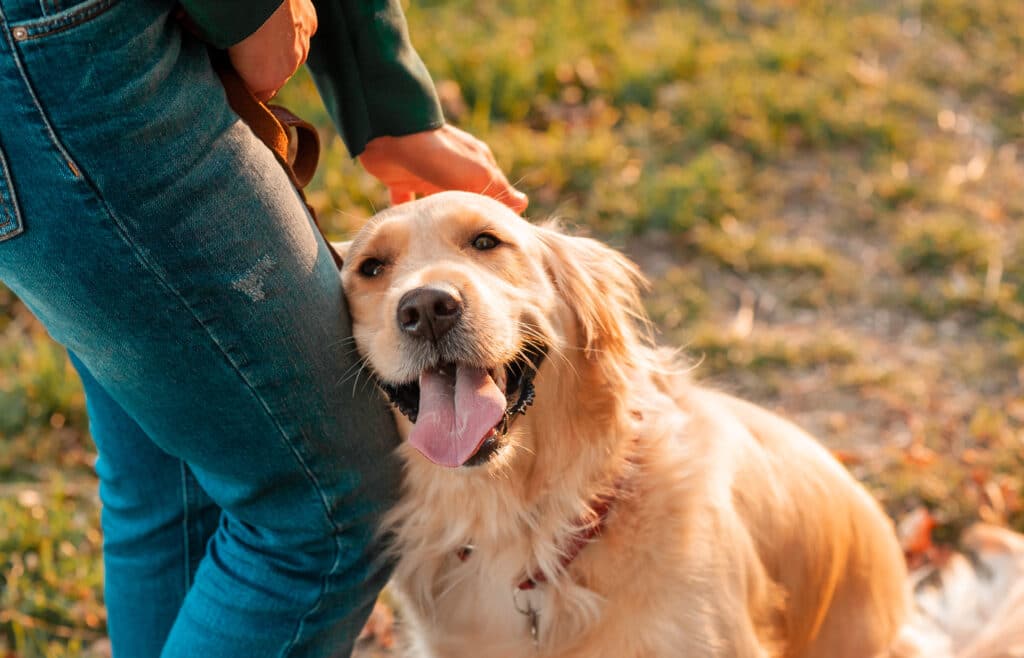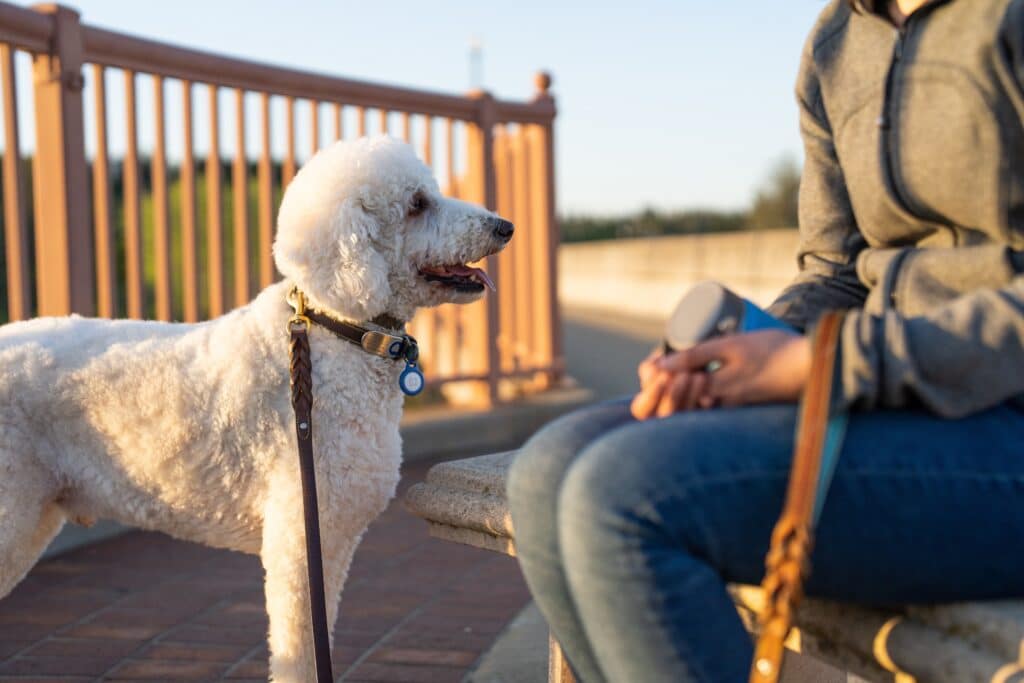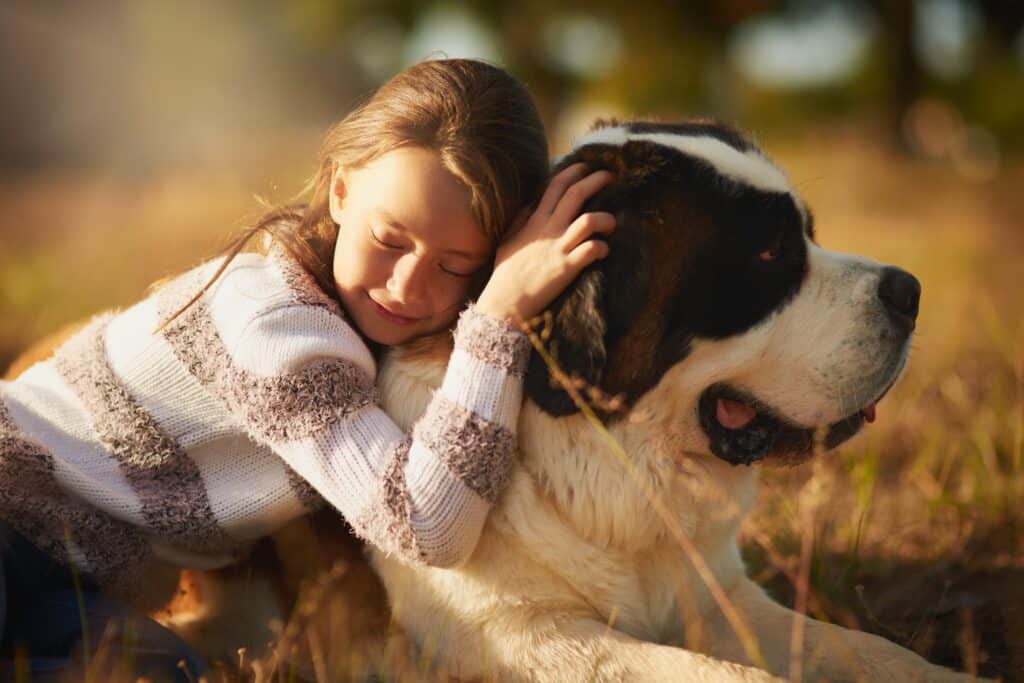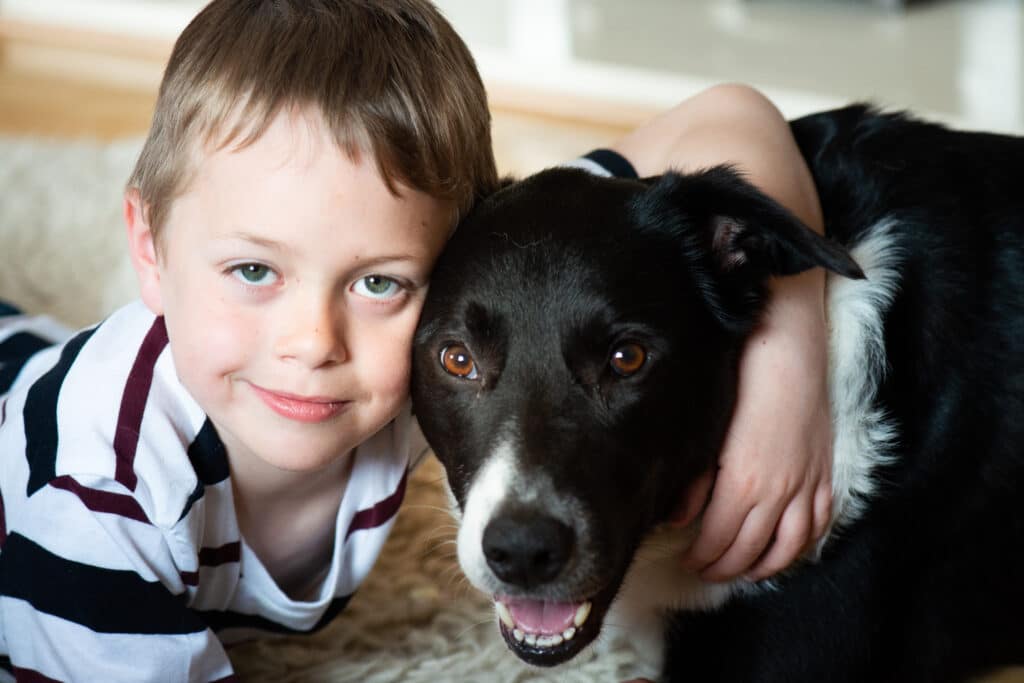Dogs are called Man’s Best Friend for a lot of things – they are loyal, they provide companionship, they give us invaluable service and security, and are just overall awesome creatures that make our lives better.
And the bonds dog are able to create with people, regardless of their disabilities, drastically improves life – a superpawer like no other.
And for individuals with Autism Spectrum Disorder (ASD) who need effective interventions and support to help them get through their every day lives, they might find an effective and powerful support in the form of four legs and a wagging tail.

While all dogs have this incredible power of improving the life of those they touch, there are certain dog breeds that are better-suited for individuals with autism.
These dogs have the temperament, patience, trainability, and the natural inclination to provide the emotional comfort and physical assistance that those on the spectrum need.
In this article, we’ll guide you on how to choose the right dog, list down seven of the best dog breeds for autism, and highlight how these breeds can make a positive change in the lives of those on the spectrum.
Choosing The Perfect Dog Breed For An Individual With Autism

No two dogs are alike – and choosing the perfect dog breed for an individual with autism requires careful consideration of different factors and criteria.
Criteria In Choosing A Dog Breed
When looking for dog breeds for autism, it’s important to consider the following criteria to find the most suitable dog:
- Temperament: The temperament of a dog is very important when choosing one for an individual with autism, because it largely determines their effectiveness as a companion. They should be calm, gentle, patient, and should have the willingness to bond and show empathy and comfort towards their human partners.
- Response to emotional cues: Along with their temperament is their response to emotional cues. They should be flexible and be able to respond well to an individual with autism’s emotional changes like hypersensitivity, stress, or even meltdowns.
- Size and activity level: A dog’s size and energy level are also important criteria to consider when looking at the best dog breeds for autism. Some might need a larger dog breed that provides a sense of security. But some, especially children on the spectrum, might need something smaller that is less intimidating.
- Trainability: A dog breed perfect for an individual with autism should be trainable. It should be able to do things for its human partner to assist them with specific needs or therapy tasks.
- Certification: An individual with autism may need more than just a friendly and loving companion. In this case, a dog should undergo formal training to develop skills necessary to assist their human partner. The certification ensures that the dog has met the standards and has developed the necessary skills.
- Types of support dog: Support dogs come in different types, depending on your needs. There are service dogs, which are trained to perform different tasks directly related to a person’s disability. For individuals with autism, service dogs can help them fetch medicine, detect and alert an anxiety attack, prevent self-harm, and so much more. There are also emotional support dogs whose primary job is to provide emotional support and comfort when needed.
Factors To Consider When Finding The Right Match
Now that you have an idea on how to choose the perfect breed, it’s time to talk about different factors to ensure that the match between the individual and dog is perfect.
Here are factors you should consider:
- Matching the dog’s energy level with the individual’s specific needs and lifestyle: It’s important to find a dog that matches the individual’s specific needs and lifestyle.
Some individuals with autism may benefit from a high-energy dog that will help them engage in physical activities, social interactions, and play time. However, some individuals may need a calmer companion to provide them with the emotional and mental support they need. - Family environment: Choosing a dog for an individual with autism is similar to finding the right dog for your family. You have to consider the family environment and dynamics, especially for children with autism. Some dogs have the temperament needed for an individual with autism, but don’t do well with children and other pets in the household. So, choose a dog that will work well with the individual with autism’s family.
- Choosing between adopting or buying: Making an informed decision between adopting and buying a dog is an important factor to consider as well. The dog should be from somewhere reputable so you know that it is healthy, well-behaved, and socialized.
The Best Dog Breeds for Autism
1. Golden Retriever

Golden Retrievers have a reputation among dog lovers as great family companions. On top of that, they are also one of the best choices for service dogs, therapy dogs, and emotional support dogs.
So, it’s no surprise that they make it to the list of best dog breeds for autism.
What makes them the perfect companion for an individual on the spectrum? Well, they’re gentle, loving, friendly, good with children, social, and most importantly, have a natural inclination to provide emotional comfort.
They are also patient, intelligent, and training them is easier than most dogs since they are also very eager to please.
2. Labrador Retriever
Along with Golden Retrievers, Labrador Retrievers also have a great reputation as family companions and service dogs. Don’t believe us? Then we’ll let their track record of being the US’ most popular dog breed for 31 straight years do the talking!
As one of the top choices for service dogs, Labrador Retrievers are affectionate, and can easily adapt to their environment.
But what makes them one of the best dog breeds for autism? They are versatile dogs! Meaning they are highly social, so they love human interaction, but they’re also very attentive of their owner or handler’s needs.
Furthermore, they work well with individuals who have depression and anxiety disorders.
3. Poodle

If size is a non-negotiable and you’re looking for a dog smaller than a Golden Retriever or Labrador Retriever but is just as smart, then Poodles are the dog breed for you.
Poodles come in a variety of sizes: Standard, Miniature, and Toy. So, you have a few choices when it comes to size.
Furthermore, they are among the best dog breeds for autism because they are clever, highly trainable, affectionate, and social. And they can work well with children with autism who need a smaller companion.
So, you can expect them to provide an individual with autism’s needs.
Not only are they smart, but they’re also a hypoallergenic breed! However, they do tend to bark a lot, so they might not work well with individuals on the spectrum who are sensitive to noise.
4. Beagle
Another dog breed that is a great option for individuals with autism who don’t want a big dog is the Beagle.
Don’t be fooled by the size of Beagles! Because even if they’re small, they do have a lot to offer to individuals with autism. These dogs are gentle and affectionate towards their owner/handler, but not so much with strangers.
They are the kind of dog that an individual with autism looking for a dog that can provide comfort and a sense of security are perfect for.
Furthermore, they are an active breed, so if you’re looking to promote physical activity and sensory stimulation, Beagles are just what you might be looking for.
5. Saint Bernard

You might be surprised to find this dog breed in this list, but trust us, Saint Bernards are among the calmest dogs out there, and therefore one of the best dog breeds for autism.
Saint Bernards may be intimidating in size, but they are known to be calm, relaxed, and sensible dogs. And they work well with either children or adults with autism. With their temperament, they can help create a sense of security and routine.
Furthermore, they are sweet dogs and can perform simple tasks. They are also great for deep pressure therapy, which individuals with autism can highly benefit from.
However, since Saint Bernards are so big, they eat quite a lot and might overpower smaller children in the family. So, make sure to think it through when deciding on this breed.
6. Collie
A Collie is a naturally intelligent dog breed and there’s no doubt that they’re among the best dog breeds for autism.
Thanks to their intelligence, they are easy to train, are focused, attentive, and therefore make great service dogs. Furthermore, they are quick to react appropriately to different emotions displayed by their owner/handler.
Additionally, Collies are also known for their loyalty. And you can expect them to stay by your side when you need them most – certainly a companion perfect for individuals with autism who struggle in social settings.
7. Cavalier King Charles Spaniel

Cavalier King Charles Spaniels are small dogs that can make big differences in the lives of individuals with autism.
As one of the best dog breeds for autism, the Cavalier King Charles Spaniel is naturally friendly and affectionate. Because as opposed to other dog breeds mentioned above, this dog was originally not bred to provide any form of work or service other than warm the laps of their hoomans.
They are known for their emotional intelligent and sensitivity. And they are also easy to train, are intelligent, can adapt well to different environments.
Furthermore, they LOVE people! Whether it be with strangers or young children, Cavalier King Charles Spaniel will do well.
How Dogs Help Individuals With Autism Thrive In Everyday Life
Dogs leave such a profound impact in our lives, and the same is true for those on the spectrum. But how do dogs positively impact the lives of individuals with autism? Here’s how:
- Providing emotional support: Dogs are able to provide emotional support to individuals with autism, especially when they feel anxious or depressed.
- Fostering independence: Common errands that seem easy to us can be overwhelming for individuals with autism. However, with a dog’s calming presence, going outside, riding public transport, or simply walking in the park can become a lot bearable.
- Enhancing social and communication skills: Hoomans are naturally drawn to dogs! With one by your side, you’ll be able to engage in easy conversations where you’re not the center of attention.
- Providing security and routine: Individuals with autism can struggle with inconsistency and the lack of routine. But guess what? Dogs LOVE consistency and routines!
- Helping improve physical health: Dogs help you exercise when you take them on walks or when you engage in play with them.
- Providing sensory support: Dogs can bring a level of calmness that those on the spectrum need in moments of anxiety or hypersensitivity.
Conclusion

From simple companionship to helping save lives, no matter how small or big the action is, dogs have proven how invaluable they are to our lives.
So, when looking for the best dog breeds for autism, make sure to carefully consider and research before making a decision.
With the right match, a dog can enrich the life of an individual with autism in countless ways. They’ll be able to provide invaluable companionship, comfort, a sense of security, acceptance without judgement, and loyalty.
